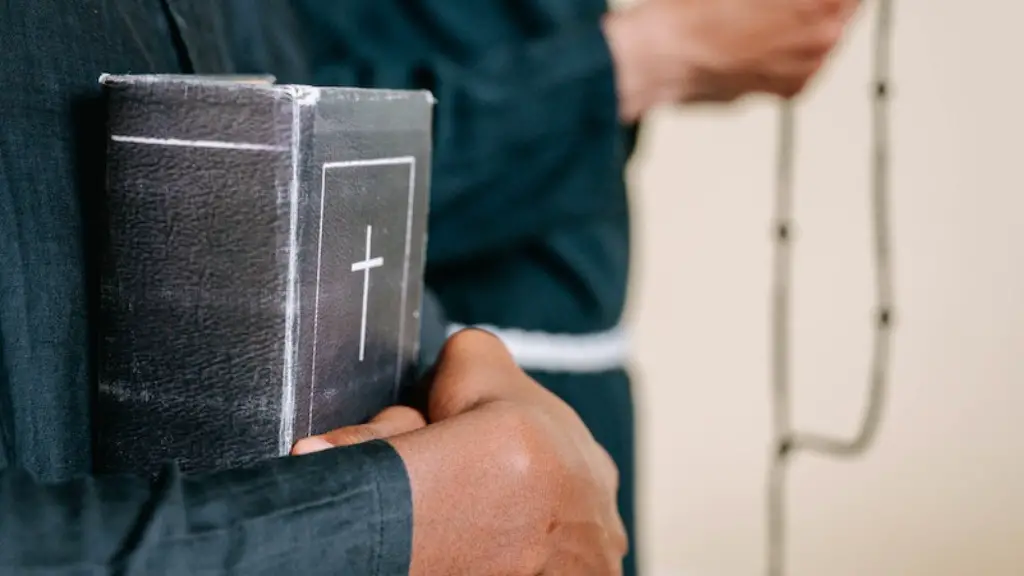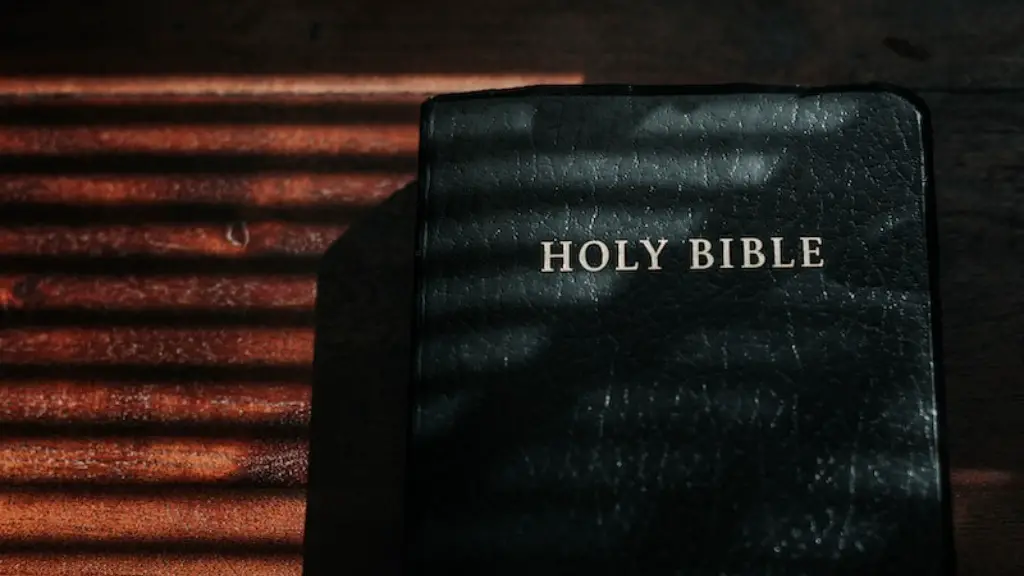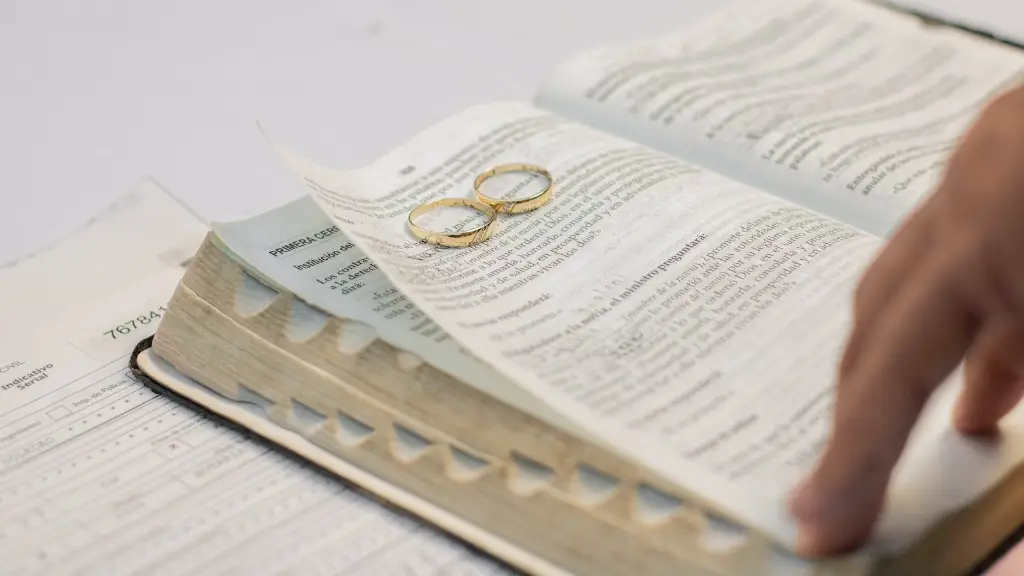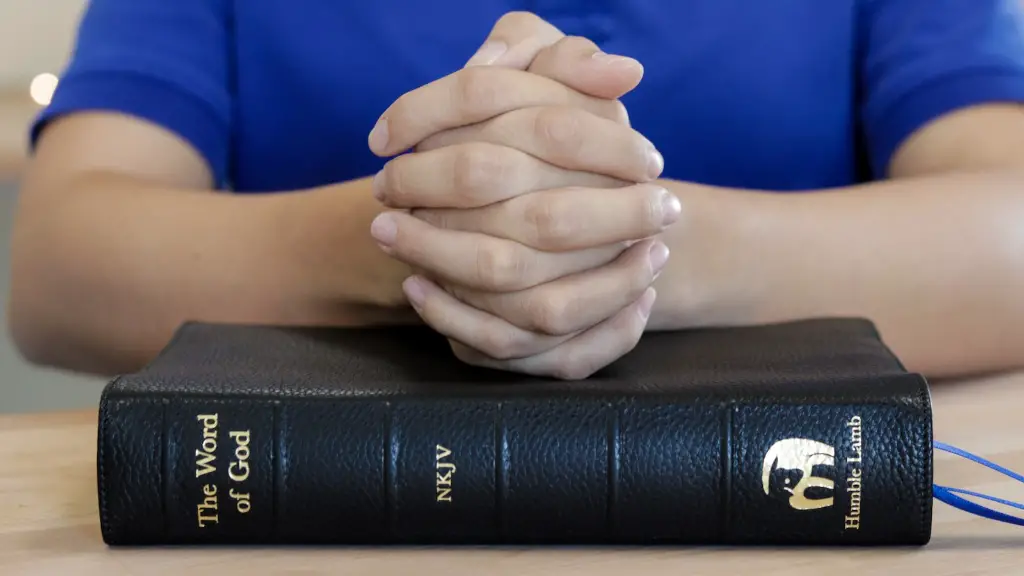The Levites were a special Israelite tribe appointed by God to be the priests in charge of all religious functions. They were responsible for teaching, preaching and guiding the people in following God’s laws. In the Bible, they were part of the Tribe of Levi, which was one of the twelve tribes of Israel.
The Levites were the only tribe besides the tribe of Levi allowed to go up onto the holy hill of the temple and tend to the altar. They were responsible for maintenance and keeping the temple clean. A large portion of their role included ritualistic duties in the priests’ courts, such as sacrifices and offerings. They also performed many ceremonies such as appointing and crowning kings, as well as giving blessings and worshipping at the temple.
In order to be a Levite, one must have been part of the tribe of Levi. For a man to join the Levites, he had to be of Levitical lineage and be at least one month old. While men were required to be of Levitical lineage to serve as a Levite, women were not required to have such a lineage. Women served many roles within the Levites, such as caring for the sanctuary, conducting services, and accompanying the men in ceremonies.
The Levites were viewed as a special people of God and were known for their loyalty and faithfulness. Their responsibility was to spread the knowledge of God to all the tribes of Israel, and to be a living example of faith. In addition, they lived in their own portion of Israel and were recognized by the other tribes for their piety and devotion to God.
Throughout the Bible, the Levites were set apart from the other tribes of Israel. They were known as “separate” or “chosen” people. This set them apart from the other tribes by giving them special status and rights. The privileges of the Levites included paid housing, a special tithe and extra land that was not available to the other tribes.
Throughout the Old Testament, the Levites’ role continued to be an important one in the society of Israel. They were in charge of many tasks such as teaching and discipleship. They were also the primary religious leaders in the time of the Kings. In the New Testament, the Levites are mentioned in a few places but their role was largely replaced by Jesus and the apostles.
Role As Priests
The Levites were appointed by God to serve as Israel’s priests. In the Bible, they were primarily responsible for carrying out religious functions in the temple. They performed sacrifices, offerings, and other rituals specified in the Torah. In addition, the Levites were responsible for teaching the people of Israel the law and precepts of God.
The Levites had to be carefully trained in order to fulfil the duties of a priest. They had to learn how to make the sacrifices, how to interpret the Torah, and other important rituals of the faith. They were also responsible for performing animal sacrifices as well as grain and wine offerings on the altar. On special occasions, they were also in charge of administering justice and crisis management.
The Levites were also in charge of maintaining the temple and keeping it holy. This included keeping the altar clean, sweeping the courtyard, and caring for the furniture. They were also in charge of food preparation for festivals, such as the preparation of the Passover meal.
The Levites were often seen as priestly mediators between God and the people of Israel. They were responsible for delivering God’s message to the people, as well as offering spiritual guidance and advice. This is why they also acted as counselors and provided comfort to the people, especially during times of crisis.
Lineage Qualifications
The Levites were the only tribe besides the tribe of Levi allowed to go up onto the holy hill of the temple and tend to the altar. To be a Levite, a man had to be of Levitical lineage and be at least one month old. Women did not have to meet the same lineage qualifications and could be Levites as well.
The lineage qualifications for joining the Levites were quite strict. To be a Levite for men, he had to be born to parents that were both from the Levitical lineage. Because of this, Levitical ancestry was recorded and recorded back three generations through the father’s side, and two generations through the mother’s side. As a result, it was very difficult for someone not of Levite lineage to join the tribe and become a Levite.
In addition to qualifying based on lineage, the Levites had to meet certain moral and physical requirements in order to become a levite. These requirements included a commitment to abstain from drinking alcohol and not participating in immoral behaviour. The Levites were also required to undergo physical tests to make sure that they were physically and mentally fit for the duties of a Levite.
Unique Clothing
The Levites had their own unique attire, which was used to separate them from others when attending religious events or ceremonies. They wore a robe-like garment that was tied at the waist. In addition, they had a fringed apron to tie around the waist, a blue turban for the head, and linen shorts to cover the lower part of their body.
The clothing of the levites served to recognize their status as the priests in the Temple. It also helped to differentiate them from all other people of Israel. The blue, fringed apron and turban were a symbol of their holiness and purity, and the linen shorts served to further mark their set apart-ness in the community of Israel.
The clothing of the Levites was unique in its style and colour, as it was not allowed to be worn by anyone else in the community. This was to further show the special status of the Levites in the eyes of God and their commitment to His service.
The Levites also used specific tools and instruments to carry out the duties of their role. These instruments included the trumpets, the ram’s horn, the anointing oil, and some other devices used for animal sacrifices and other religious rituals.
Famous Levites
Throughout history, some of the most well known prophets and leaders of the Jewish faith were from the Levitical priesthood. Some of these famous figures include Moses, Aaron, Joshua, and Samuel.
Moses was the leader of the Exodus, leading the Jewish people out of Egypt and through the wilderness. Aaron was the first priest of Israel, responsible for the creation and maintenance of the tabernacle in the wilderness. Joshua was a leader of the Israelites in the conquest of Canaan, and Samuel was a powerful prophet who anointed the first kings of Israel.
The Levites are also mentioned in the New Testament. Most notably, Jesus chose Matthias, a Levite to replace Judas as one of the twelve apostles. He also chose Simon, a Levite, to be the first Bishop of Jerusalem.
Significance In Modern Judaism
The concept of the Levites persists in modern times in traditional Judaism. The Levites are still seen as a special class of Israelites, responsible for performing religious rituals and providing spiritual guidance to the people.
In modern Judaic communities, it is still typical to have a Levite present during religious ceremonies. The Levites play an important role in synagogue services, providing spiritual guidance to worshippers, leading prayers, and instructing on religious matters. They are also still in charge of many of the temple rituals, taking part in sacrifices and other important religious duties.
The Levites are also important in the modern Jewish community because of their teaching role. Many modern Jewish men and women turn to the Levites for spiritual advice and guidance. They are highly respected for their commitment to their faith and their loyalty and dedication to God.
Role In Jewish History
The Levites and their role as priests and teachers have been an important part of Jewish history for thousands of years. They have served as spiritual guides and religious leaders, as well as role models of faith and devotion to God.
Throughout Israel’s history, the Levites have played an important role in helping the Jewish people remember their past, their faith, and their connection to the divine. They have been instrumental in passing down traditions, laws, and teachings, helping to keep the Jewish faith alive.
The Levites were, and still are, an integral part of Jewish life and culture. They are seen as a special people of God and are respected and honoured for their unwavering commitment to Him and their duties.
The Levites remain an important presence in modern Judaism. From religious duties in the temple, to teaching and counselling in the community, the Levites play a crucial role in keeping the faith alive and connecting the Jewish people to their religious roots.





